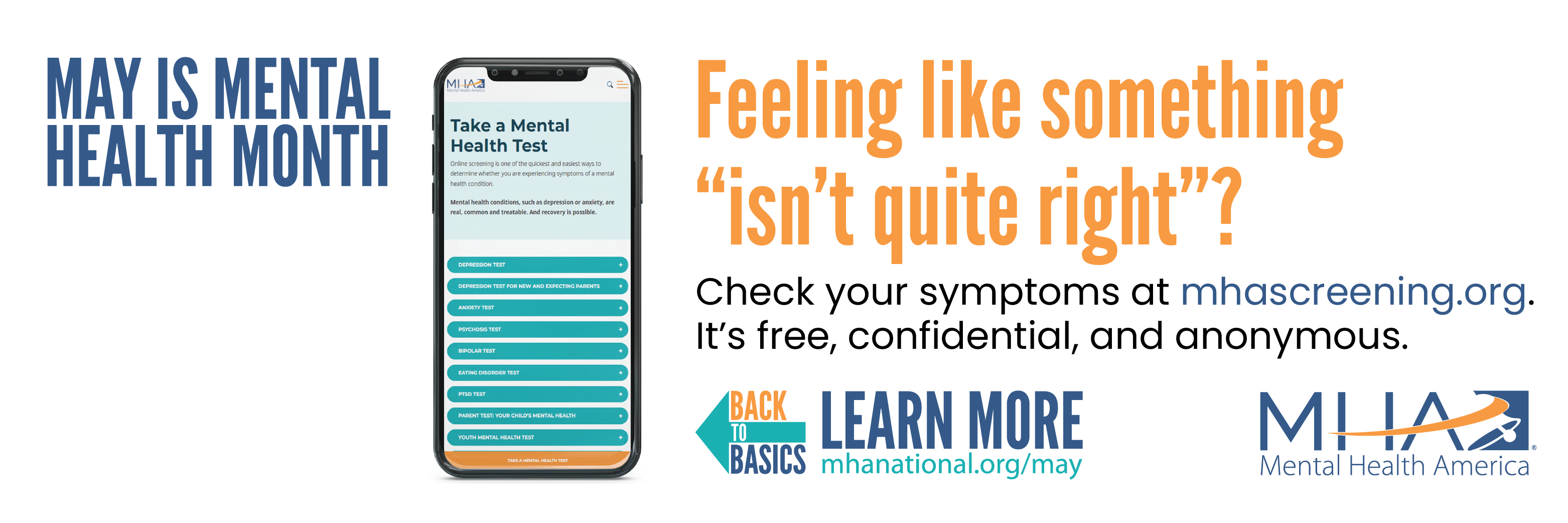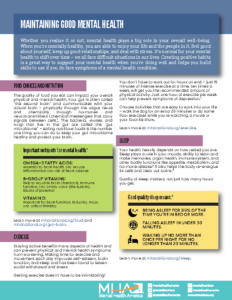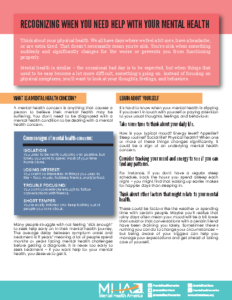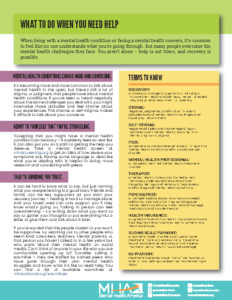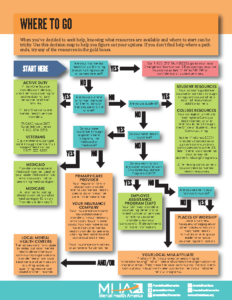May is Mental Health Month
Back To Basics: Practical Mental Health Information Since the start of the pandemic, more and more people are talking about mental health. An increasing number of folks are starting to see it for what it is: one imp...
Back To Basics: Practical Mental Health Information
Since the start of the pandemic, more and more people are talking about mental health. An increasing number of folks are starting to see it for what it is: one important component of your overall health and well-being, just like your physical health. But mental health conditions, resources, and conversations can still feel complicated and out of reach.
Are there common warning signs for mental health conditions or crises? Specific factors that can lead to mental health conditions or even crises? What resources are out there – and how do I know if they’re right for me?
Many people are learning about mental health topics for the first time. Having a widespread understanding of the topic can help you be more informed if you or someone you know is experiencing a mental health condition or crisis. Around half of people in the U.S. will meet the criteria for a diagnosable mental health condition at some point in their life, so everyone should know what to look out for.
Everyone should have the support needed to thrive. Communities that have been historically and presently oppressed face a deeper mental health burden because of the added impact of trauma, oppression, and harm.
There’s often no one single cause for a mental health condition. Instead, there are many possible risk factors that can influence how likely a person is to experience a mental health condition or how serious the symptoms may be.
Some risk factors for mental health conditions include: trauma, which can be a one-time event or ongoing; your environment and how it impacts your health and quality of life (also known as social determinants of health like financial stability and health care access); genetics; brain chemistry; and your habits and lifestyle such as a lack of sleep.
Of course, understanding the risk factors for a mental health condition can be more difficult when it’s your own mental health. Take time to ask yourself about your thoughts, feelings, and behaviors to see if this is part of a pattern that may be caused by a mental health condition. Here are some questions to get you started:
- Have things that used to feel easy started feeling difficult?
- Does the idea of doing daily tasks like making your bed now feel really, really hard?
- Have you lost interest in activities and hobbies you used to enjoy?
- Do you feel irritated, possibly to the point of lashing out at people you care about?
Our society focuses much more on physical health than mental health, but both are equally important. If you are concerned about your mental health, there are several options available. You are not alone – help is out there, and recovery is possible. It may be hard to talk about your concerns, but simply acknowledging to yourself that you’re struggling is a really big step.
Taking a screen at mhascreening.org can help you to better understand what you are experiencing and get helpful resources. After that, consider talking to someone you trust about your results, and seek out a professional to find the support you need.
While you may not need this information today, knowing the basics about mental health will mean you’re prepared if you ever need it. Go to mhanational.org/may to learn more.
Click on the thumbnails below to download helpful PDFs from Mental Health America.
Maintaining Good Mental Health
|
Recognizing When You Need Help |
What To Do |
Where to Go |

 hover background
hover background
